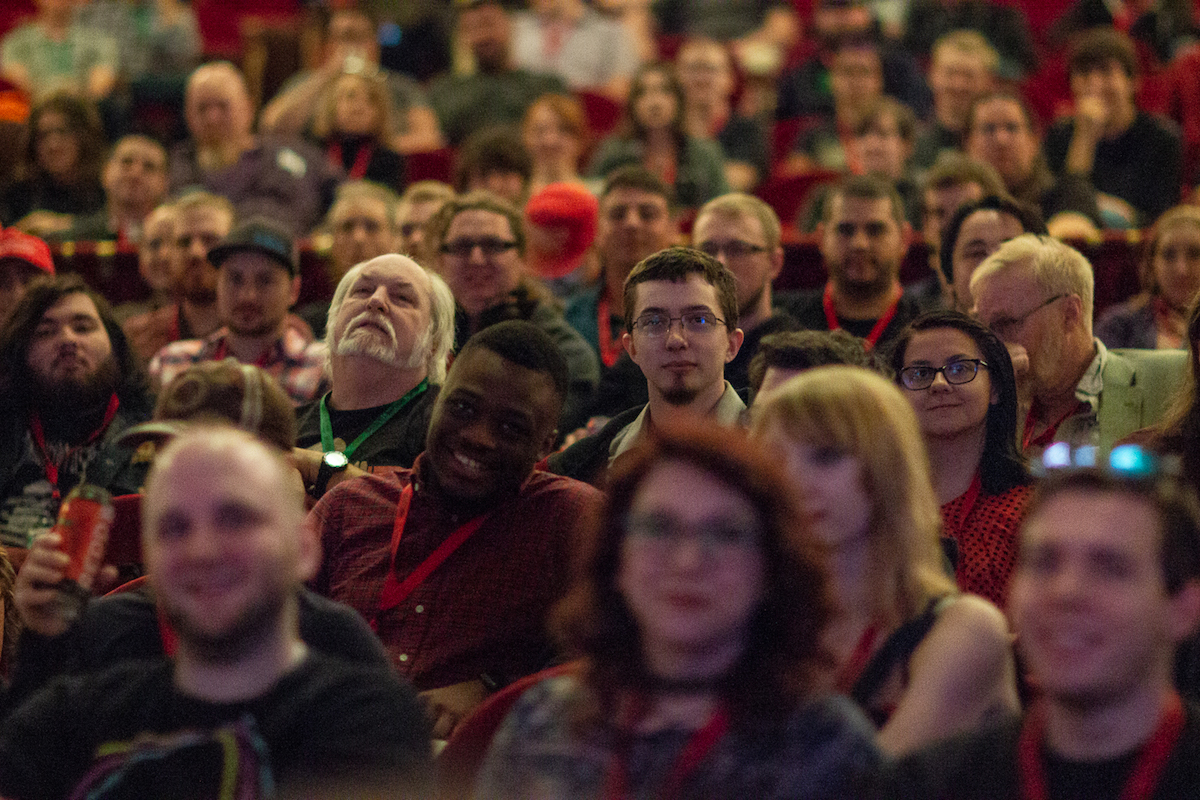Centrism
Amidst the YouTube Junkies of MythCon, I Witnessed a New Kind of Radical Centrism
This was a room full of people passionately engaged in the world of ideas. Yet in their panelist remarks and Q&A comments, few of the speakers and audience members invoked the name of any actual party, politician or even broad political movement.

Late Saturday afternoon, police ordered the evacuation of the historic Pabst Theater in downtown Milwaukee because of a bomb threat. Along with hundreds of other MythCon attendees, I filed out in orderly fashion. While most of the crowd milled around City Hall, I went up to my hotel room at the neighbouring Intercontinental. But that building, too, was evacuated by police, because it sits adjacent to the Pabst. Across the street, a bride in white shuffled around nervously with her family. Her wedding reception was scheduled to begin shortly in the Intercontinental ballroom. These are the ordinary people who suffer when idiots phone in bomb threats.
Eventually, we were all let back into the Pabst, and our conference resumed, amidst much gossip about what had motivated the bomb hoax. It says a lot about the ideologically heterodox nature of MythCon—a secular humanist and atheist meet-up organized by self-described “mythicists” seeking “to promote dialogue about culture, religion and freedom of thought”—that no one could be quite sure. The headliner was a popular YouTuber named Sargon of Akkad who’s often described as a radical conservative. But Sargon (known to the world of flesh as Carl Benjamin) disdains the alt-right label, and his most implacable online enemies tend to be hard-right trolls. MythCon itself (more formally known as the Mythinformation Conference) originated five years ago as a rally for atheists and skeptics; and so the hoaxer could theoretically have been a Christian conservative. Or it could have been a radical feminist who opposed the panel on transgenderism—or a trans activist opposed to the oddball politics of the trans trio that appeared as panelists. Or the whole thing might have been rooted in some fantastically obscure feud that played out on a comment thread. As I learned on Saturday, MythCon is in large part a meet-up for YouTube devotees, with the celebrity value of panelists casually measured in the currency of views and “subs.”
I’d come to MythCon out of professional interest. Two of the speakers at the one-day conference were my Quillette teammates—Editor-in-Chief Claire Lehmann (who spoke about the future of media) and columnist Clay Routledge (who heroically managed to keep his composure amidst a panel on intersectionalism that almost immediately devolved into testiness, bickering and audience pandering). But even before the first panel was done, I’d already become fascinated by the proceedings, as they played out both on stage and among the vocal audience members surrounding me. From out of this strangely coherent melange of exasperated heretics and hipster autodidacts, I caught a glimpse of that once-endangered political animal called radical centrism.





